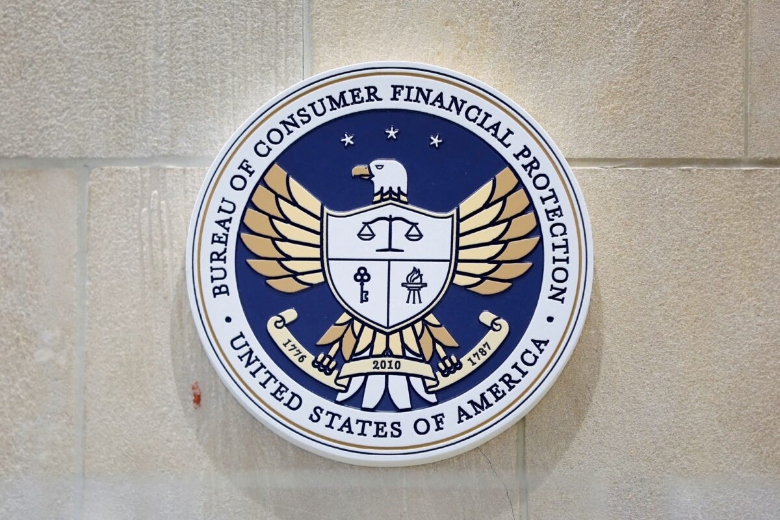The Biden administration’s Consumer Financial Protection Bureau (CFPB), often referred to as Senator Elizabeth Warren’s brainchild, has introduced a polarizing new regulation designed to limit overdraft fees. While the rule’s intent is to protect consumers and increase transparency, experts and lawmakers argue it could inflict more harm than good, especially on low-income Americans.
The CFPB’s new rule caps overdraft fees at $5, significantly below the current average of $35. Banks must also classify overdrafts as loans rather than penalties, altering how these charges are regulated. The bureau asserts that this change will benefit consumers by curbing excessive fees and offering greater transparency.
Top Immunity Support For The Times:
Immune systems can be weakened by poor diet, lack of sleep, and countless other environmental factors.
Our products may help support your body’s natural defenses.
Save 15% W/ Code “SAVE”
Visit: https://GetZStack.Com
Includes FREE SHIPPING in USA
Critics, however, warn the rule could backfire. Banks, facing reduced revenue, may impose stricter requirements for account holders or eliminate overdraft protection services altogether. This, they argue, would push financially vulnerable individuals toward high-interest payday lenders, compounding their financial struggles.
“This is yet another example of regulators misunderstanding private business operations,” said E.J. Antoni of the Heritage Foundation. “These regulations will disproportionately impact low-income families, limiting their financial options and driving them toward predatory lending practices.”
Payday lenders are infamous for their sky-high annual interest rates, ranging from 300% to 500%. This far exceeds the typical annual percentage rates (APRs) for credit cards, which range between 15% and 30%. Critics of the CFPB rule highlight the irony of forcing consumers away from banks and toward lenders that charge far more for short-term loans.
Adding to the urgency, American household debt has reached an all-time high of $18 trillion, with credit card balances surging to $1.17 trillion in late 2024. With more Americans living paycheck to paycheck, the new rule could exacerbate an already dire situation.
The CFPB justifies its regulation by reclassifying overdraft fees as loans. Legal experts, however, are calling foul on this interpretation. Erik Jaffe, a partner at Schaerr | Jaffe LLP, described the move as inconsistent.
“Overdraft fees are penalties, not loans. They don’t fluctuate with time, and banks aren’t extending credit in the traditional sense,” Jaffe explained. “The CFPB’s argument is shaky at best. If overdrafts are loans, why regulate penalty amounts? If they’re penalties, the CFPB has no jurisdiction. The logic doesn’t hold up.”
The rule is already facing legal challenges. The American Bankers Association (ABA) filed a motion for a preliminary injunction, claiming regulatory overreach. Legal experts believe the recent Supreme Court decision to overturn Chevron deference—a precedent that gave agencies wide latitude in interpreting statutes—could weaken the CFPB’s case.
Republican lawmakers have condemned the rule, labeling it a case of “midnight rulemaking” by the outgoing Biden administration.
“This regulation undermines consumer choice and limits access to credit,” said Senator Tim Scott, the incoming chairman of the Senate Banking Committee. “With a new administration just weeks away, this rule should never have been finalized. I look forward to working with the next CFPB director to prioritize policies that truly benefit consumers.”
Representative French Hill echoed Scott’s concerns, describing the regulation as a misguided attempt at government price control.
“We warned agencies to halt last-minute rulemaking, yet Director Chopra ignored us. Capping overdraft services will hurt consumers, not help them,” Hill stated.
The rule could disproportionately impact the very demographic it seeks to protect. In 2022, 17% of households with checking accounts reported paying overdraft fees. Lower-income families were twice as likely to incur these charges compared to those earning $100,000 or more.
“Capping fees disrupts the pricing mechanism that reflects the costs and risks of providing overdraft services,” said Peter Earle, an economist at the American Institute for Economic Research. “This kind of regulatory intervention undermines market dynamics, harming consumers and businesses alike.”
Without revenue from overdraft fees, banks might eliminate these services, leaving low-income Americans with fewer options. Payday lenders, with their exorbitant interest rates, may become the only viable alternative for many.
The CFPB, created under the 2010 Dodd-Frank Act, was championed by Elizabeth Warren. Former President Barack Obama praised Warren’s vision, calling the agency “Elizabeth’s idea.”
While the CFPB was intended to ensure fairness in financial dealings, critics argue this latest move is a stark example of regulatory overreach.
The CFPB faces mounting legal and political opposition. Banking groups are challenging the rule in court, and a change in administration could see the regulation reversed.
For now, the overdraft fee cap raises pressing questions about the balance between consumer protection and free-market principles. While the CFPB’s intent is to safeguard depositors, its execution may leave low-income Americans with fewer choices and higher financial burdens.
The controversy underscores a fundamental tension in policymaking: how to protect vulnerable consumers without stifling innovation or restricting access to critical services.


We citizens may be missing the point. No rules or regulations, from ANY, agency, should be forced upon us the U S Citizens without first being negotiated and voted on by CONGRESS. And no rules or regulations should be passed that will not include compliance of members of congress. They work for us. We can fire them. (Vote Them Out)